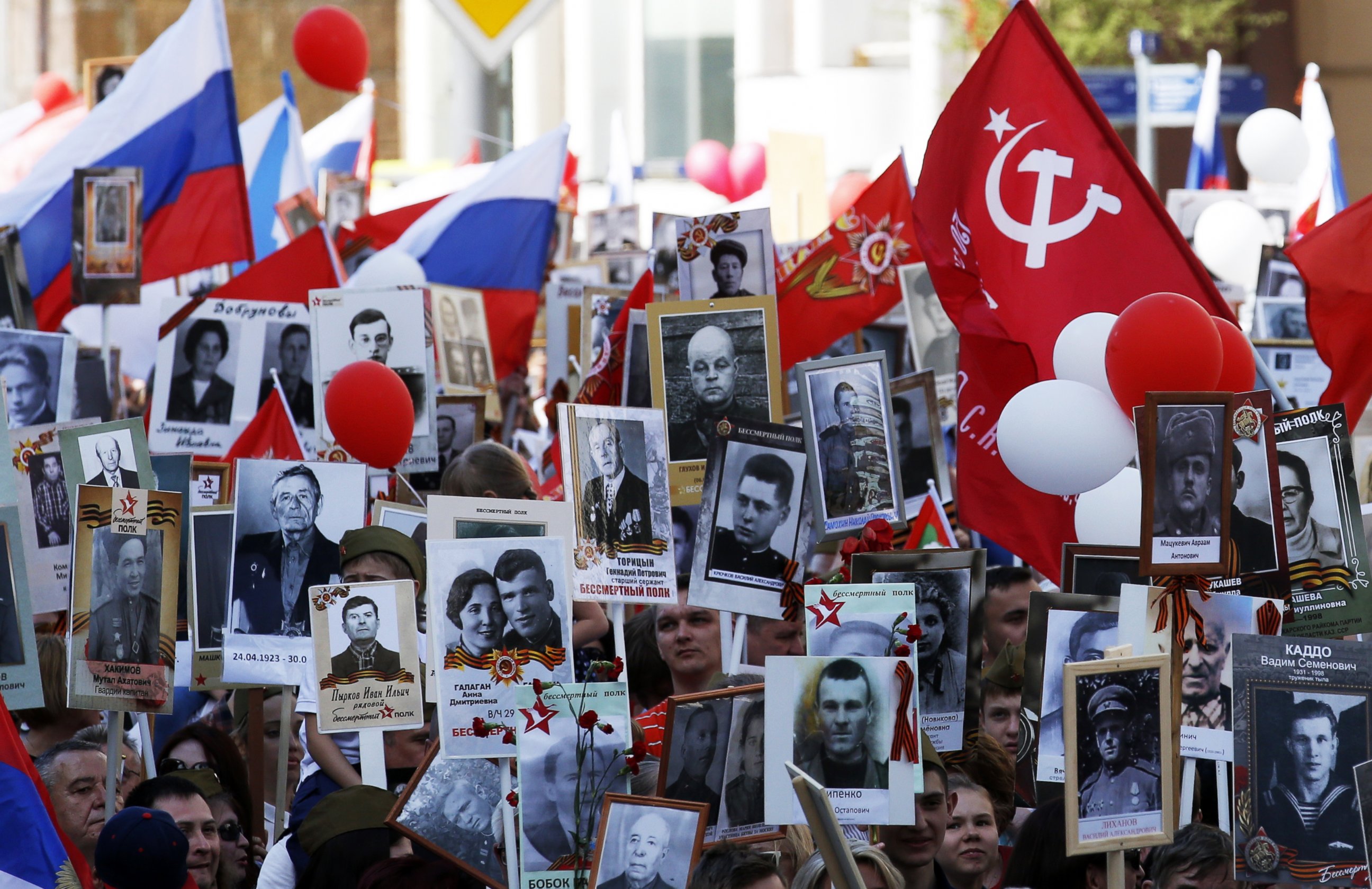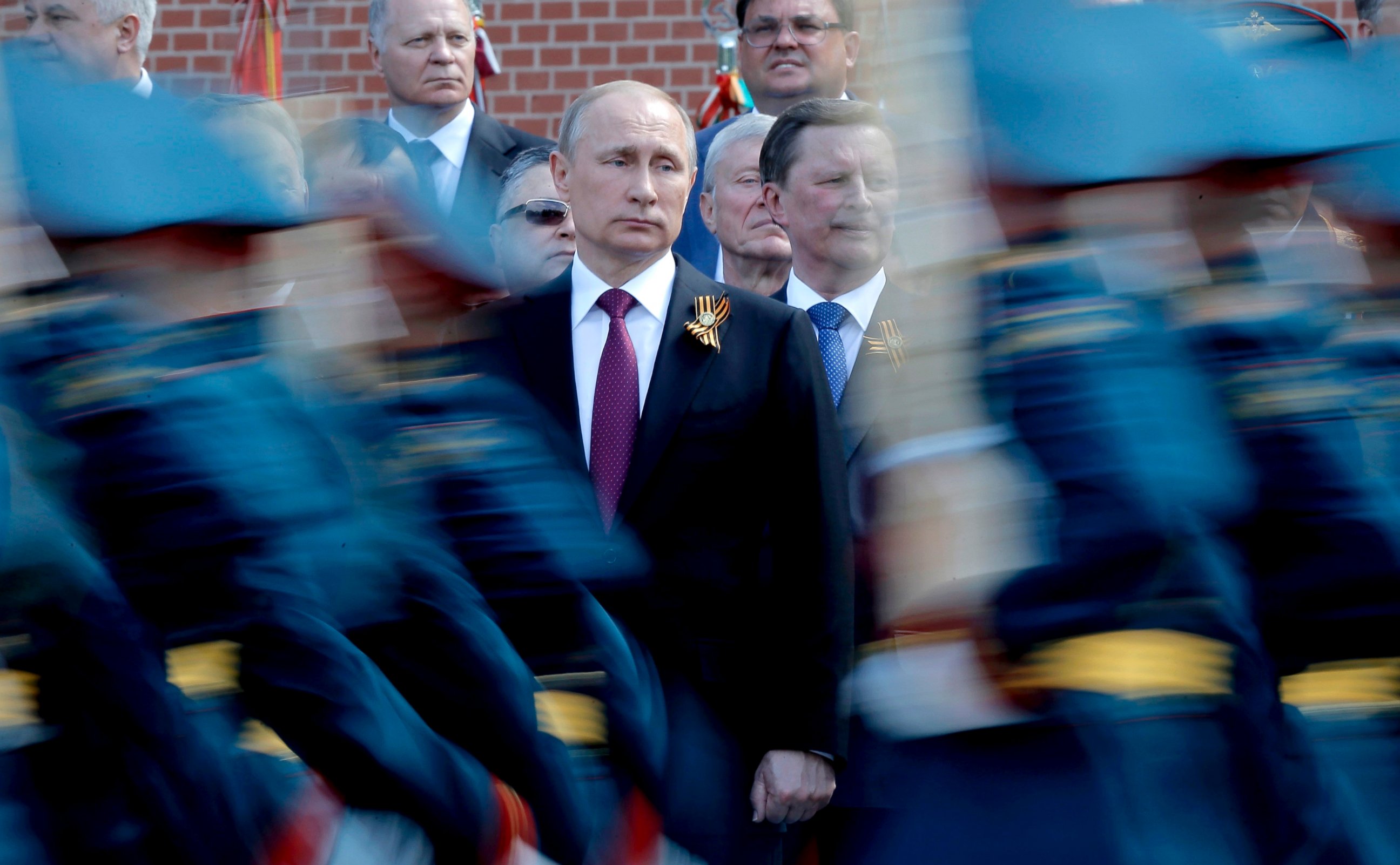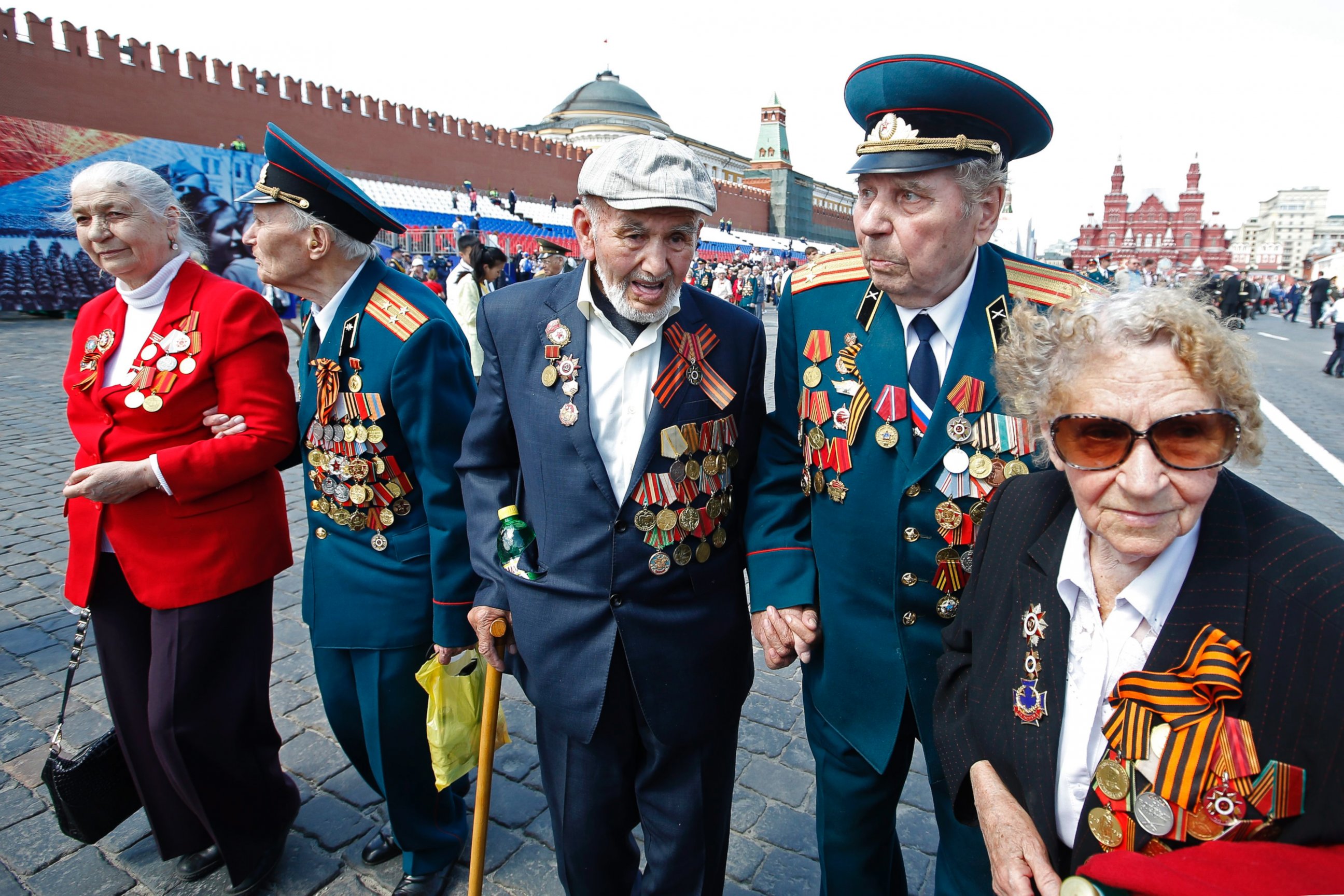Russian Victory Day Celebration Short on Jabs at US
Putin instead cites need for a "modern system of international security."
MOSCOW — -- Russia is celebrating Victory Day, the huge national holiday that marks the Soviet defeat of Nazi Germany in World War II and is accompanied with massed displays of military might in Moscow.
As every year, President Vladimir Putin presided over a military parade in Moscow, with thousands of troops and dozens of armored vehicles thumping through Red Square past the Kremlin.
Although the armed display was large, it was considerably more modest than last year’s parade, which saw the spectacular pageantry of the 70th anniversary of the war’s end combined with a high point in Russian bellicosity following the annexation of Crimea.
Today, only half as much heavy armor rumbled into the square.

But the parade was also shadowed by a notably different stage where Russian forces have recently been on violent display, in Syria, and where Moscow has been conducting a brutal air campaign to prop up its ally Syrian President Bashar al-Assad against rebel groups.
That conflict hung large over this year’s parade. Some of the same aircraft that have been pounding rebel-held areas in Syria flew low over Red Square, letting off flares. Russia’s air force has been repeatedly accused by international rights groups of indiscriminately targeting civilians.
Putin congratulated the Russian military for their Syrian operations, comparing Moscow’s campaign against what Putin called international terrorism to the country’s existential struggle against Nazi Germany.
“Today, civilization again is confronted with brutality and violence,” Putin told the roughly 10,000 troops assembled. “Terrorism has become a global theat. We are bound to defeat this evil.”

In contrast to other years, Putin made almost no jabs at the United States or other Western countries and, instead, reiterated that Russia “is ready to work on the creation of a modern system of international security, outside of alliance blocs.”
As he has for months now, the Russian leader invoked Syria as a way for Russia and the West to work together.
But while the number of tanks was scaled back, across Moscow the holiday’s civilian face and ordinary Russians’ passion for it was mostly undiminished. Thousands of Muscovites turned out to stroll around the city, wearing Soviet-era hats and enjoying the sunshine, guaranteed as always by flights of planes that had cleared the clouds with chemicals.
Children dressed as little Red Army soldiers posed for photos; one small boy stood in rapture beneath a flag of Stalin’s face more than twice his size.
In what is becoming a feature of the holiday, hundreds of thousands of Russians later flooded the city’s central streets as part of a march to remember their relatives who served in the war, carrying placards with their portraits. Moscow’s police, who often overestimate favored rallies, put the number at close to 600,000.

The portrait march also reflected the complexities of Victory Day and its difficult mixture of personal loss and state bombast. Named the “Immortal Column,” the march began life as a spontaneous apolitical event by people across Russia seeking to commemorate their loved ones and is one of the country’s few genuine mass movements.
About 27 million Soviet citizens died in the war, dwarfing the losses of other countries. Almost every family lost a relative. This year, however, its original organizers have accused the state of recently seizing control of the marches to promote nationalist sentiments.
"The column is turning into a ritual," Sergei Lapenkov, one of the marches' original organizers, told the Russian site Gazeta.ru. Lapenkov lamented that the march was less about personal remembrance and more about a mass state ceremony.
Pro-Kremlin politicians have taken over the march’s organization in many cities and in some places have begun pushing students to carry placards with veterans unrelated to them.
But while many of those marching in Moscow had availed themselves of the free state-sponsored facilities to print off their relative’s portraits, there was little sign of coercion. People explained at length and enthusiastically about the relatives whose pictures they were carrying.
Crowds of happy families moved down toward the Kremlin, listening to Soviet songs and cheering “Hurrah” when helicopters flew over.
Few expressed much interest in politics or the military hardware that had passed through earlier, insisting instead the event was about gratitude and remembrance. State volunteers on the sidelines handed out water, but seemed largely to illustrate how the Kremlin was seeking to tap into deep-rooted emotions that remain somewhat beyond it.
Some acknowledged that the procession might be used by the authorities as a way to foster national feelings but, in any case, they said, this was less important than marching.
“It is very likely a good opportunity for them,” lawyer Yelena Orekhova, 43, said, holding a photograph of her uncle who was killed fighting. “But people come here because of a feeling from the depths of their hearts. It’s a sort of outburst.”




